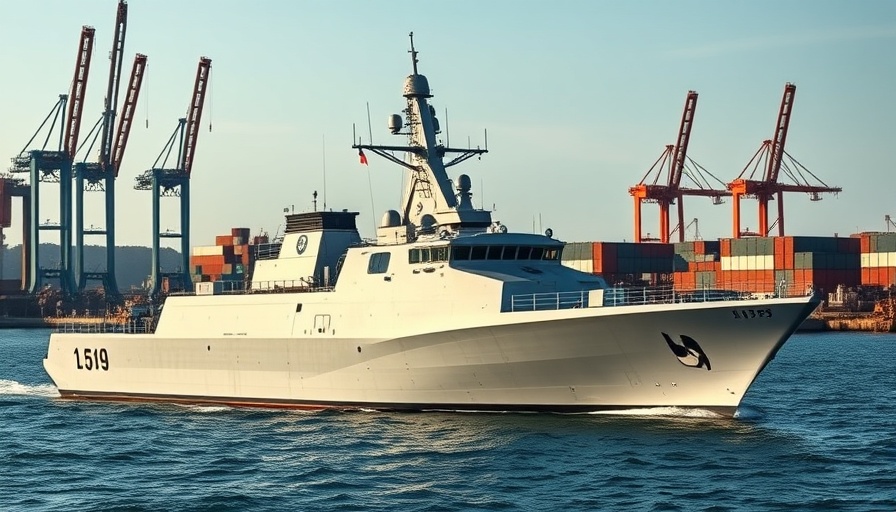
Understanding the Significance of the Bergamini-class FREMM
The Italian Navy's new anti-submarine warfare (ASW) enhanced Bergamini-class FREMM (Frégate Européenne Multi-Missions) represents a crucial step forward in naval defense capabilities. As security concerns in maritime operations grow, understanding the technical advancements and operational potential of these vessels is increasingly important. With state-of-the-art technologies specifically designed for ASW, the Bergamini-class FREMMs will play a vital role in protecting national interests and responding to emerging threats.
Historical Context of Naval Warfare Enhancement
Nations have always sought to improve their naval technologies and strategies, particularly in response to new challenges. The development of the FREMM-class ships illustrates this trend by integrating advanced systems that enhance situational awareness and combat capabilities. Historically, anti-submarine combat has been a critical aspect of naval warfare, particularly during the Cold War. Today, the evolving landscape of technology and warfare necessitates modern ships that can adapt to both traditional and unconventional threats.
The Technical Innovations Driving the Bergamini-class
Equipped with advanced sonar systems, the Bergamini-class FREMM operates with a high level of efficiency in detecting and neutralizing underwater threats. These ships incorporate cutting-edge technology such as the Thales UMS 5200 sonar—a system known for its ability to locate submarines at considerable distances. Moreover, the surface combatants’ automated systems substantially reduce crew workload, allowing sailors to focus on tactical operations during critical missions.
Implications for Global Naval Strategy
The enhanced capabilities provided by the Bergamini-class FREMM resonate beyond Italy, influencing broader NATO naval strategies. As global naval operations are increasingly characterized by coalition efforts, interoperability between allied forces is essential. The technological advancements incorporated into the FREMM-class open opportunities for improved collaboration with other nations, fostering joint strategies that enhance maritime security on a global scale.
The Social Impact of Enhanced Naval Power
In today’s geopolitical environment, ensuring robust naval defense is not only a matter of military necessity but also one of social stability. Modern warfare's relentless evolution affects global citizens directly—whether through economic implications or local security concerns. As nations invest in these advanced vessels, communities can feel more secure knowing that their country's naval force is better equipped to protect against threats.
Looking Ahead: Future Naval Trends
The introduction of the Bergamini-class FREMM sets a precedent for the future of naval combat, but what lies ahead for naval innovation? Emerging trends point towards greater automation, artificial intelligence integration, and eco-friendly technologies. As nations continue to address the effects of climate change, the transition to using more sustainable materials and energy sources could become a focal point in shipbuilding. Monitor this evolving landscape, as it will influence not only military strategies but also the global economy.
Conclusion: The Need for Continuous Engagement
As we assess Italy's new Bergamini-class FREMM, it's clear that understanding its capabilities and strategic implications is vital for both military professionals and concerned citizens. Awareness facilitates informed conversations around national security and defense policies. Therefore, staying engaged with developments in naval technology can help foster greater community understanding and proactive support for robust defense initiatives.
 Add Row
Add Row  Add
Add 




 Add Row
Add Row  Add
Add 

Write A Comment